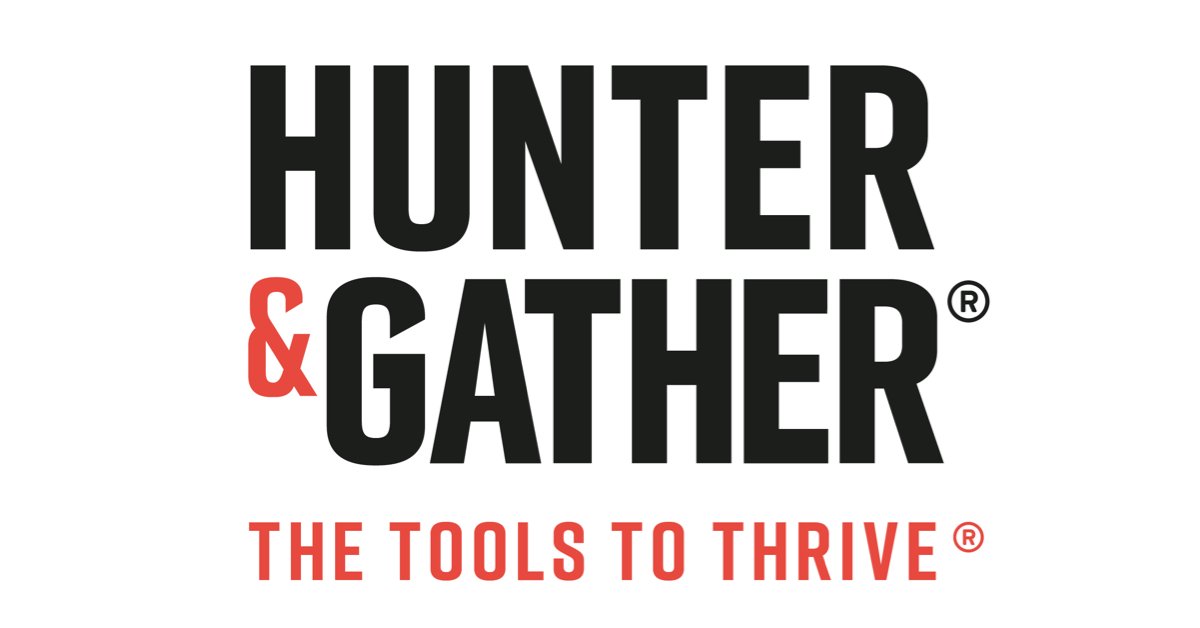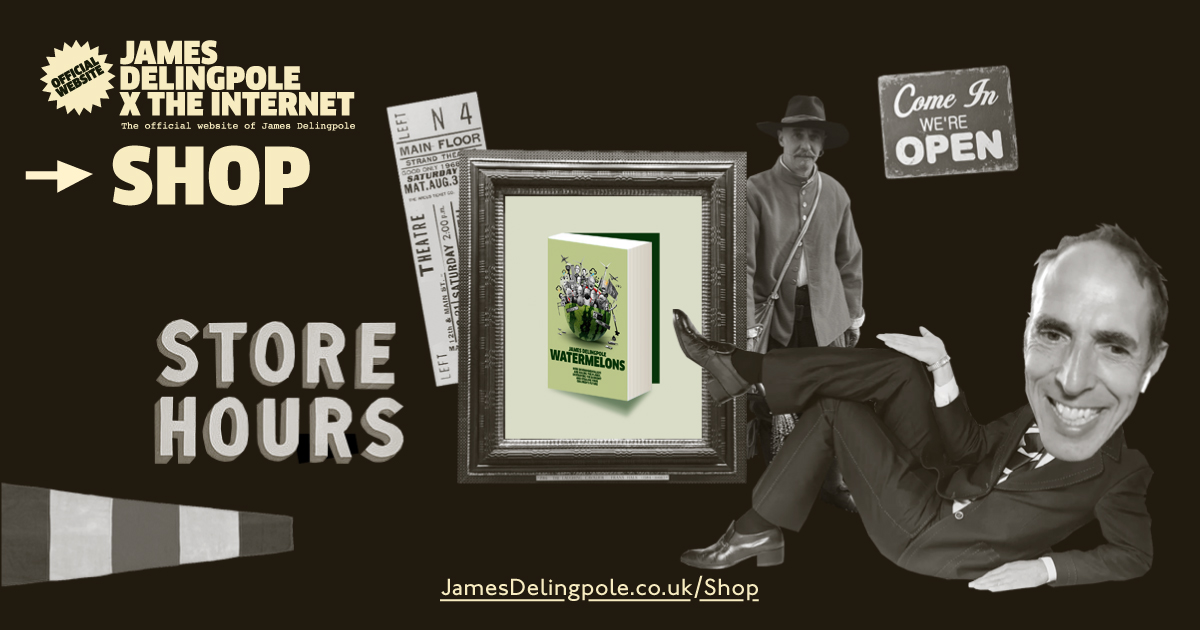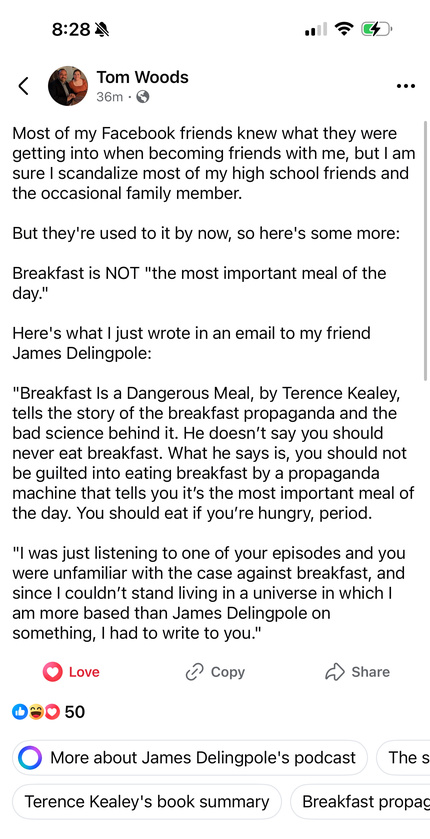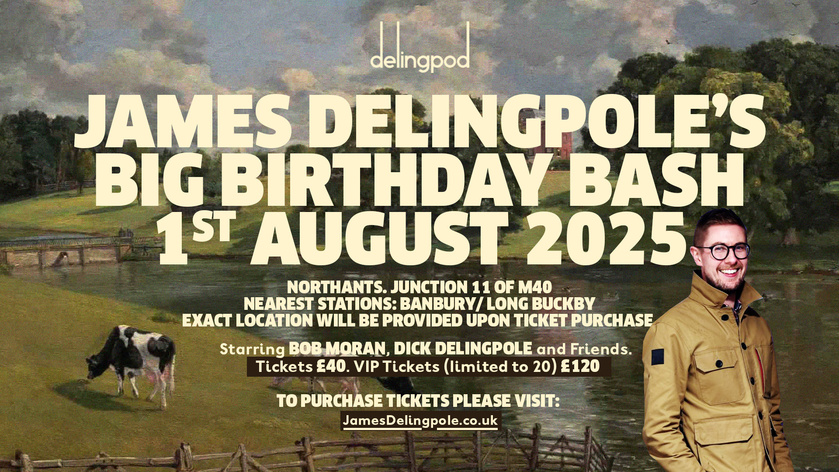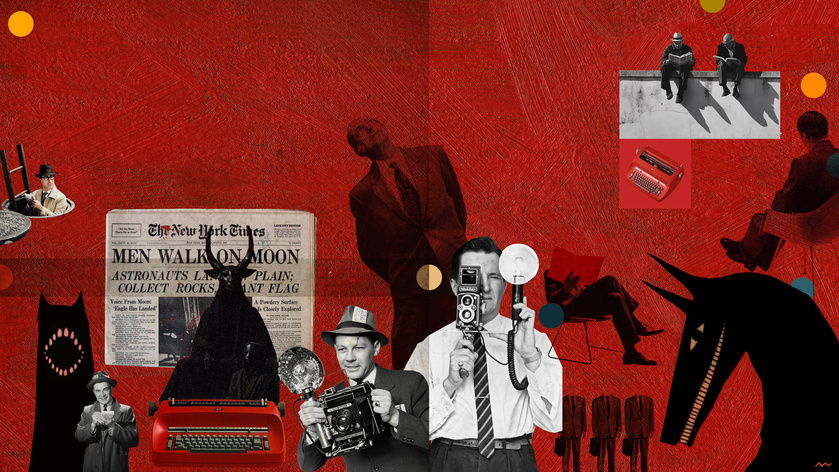I was about to start writing Part Two of my piece Most Journalists Don’t Realise They Are Working For Satan, when a thought occurred: “Hang on, James. Shouldn’t you be plugging your show?”
It’s this Saturday, on the off chance you are interested. I quite understand if you’re not: you’re probably busy, this miserable weather doesn’t make you feel like venturing away from home, and anyway, it’ll just be me and Dick on a stage talking rubbish as usual.
You’re right. Dick and I sitting on a stage talking rubbish is indeed what you’re going to get this Saturday evening. As usual we won’t be at all prepared. Well, Dick might but I won’t because I’m lazyI like to keep it real.
The only thing I will have to do in advance is wrap Dick’s present which I got him from Russia. He’s going to really love it because it is about as Dick a present as you could possibly imagine and I want to watch his little eyes light up as he tears off the wrapping.
But to be fair, I do have roughly in my mind some of the few things I want to talk about. One of them is ‘Who Really Runs The World?’, which obviously for us batshit-crazy tinfoil hat loons is one of those ongoing conversations which keeps changing the more we learn. Another is ‘Was Churchill more evil than Hitler?’ We’ve talked about this stuff before but my take on these issues in 2025 is going to be subtly different from the ones you heard in 2024 or 2023, let alone in say 2019 when I was about 90 per cent Normie. (I’m allowing myself 10 per cent off because I did at least know back then that climate change was bollocks).
Will we play the “Yes/No” game? I doubt it because the answer always “No” these days. But you never know. Perhaps Dick might surprise me. Or perhaps he might introduce a wild card game he has invented for the occasion.
There will be no Christmas decorations. Sorry but it’s too early.
Nor, likely, will I wear my Christmas jumper. Too hot.
But we will do the Lords Prayer at the beginning - inter alia, to ward off any demons and because it makes everyone feel amazingly uplifted - and Jerusalem at the end.
Also, you get to see Unregistered Chickens, who just get better and better. Or so I’m told by one of the band members. Dick and Andy the lead singer keep making bitchy remarks about the fact that even when they’re playing at my events I never come to see them. Or only for a few minutes. I try to explain, honestly, that this isn’t because I’m too grand or because I think they’re crap but because before you do a show the very last thing you want to be doing is hanging out with the audience because it drains all the energy you need for the show.
Still I think the thing you’ll enjoy most about the event is hanging out with like minded folk. You’ll be able to put faces to the names of some of the fellow Awake people you know from online. And you’ll be able to talk about all the things - Michelle Obama’s big swinging lunchpack; hybrid creatures bioengineered in the same Antartica DUMB where they breed the children for adrenochrome, were the Thunderbirds puppets actually devised as a result of remote viewing technology which enabled Gerry Anderson to see into the future from the 1960s and watch Konstantin Kisin and the other one presenting Triggerpod? etc - that you will probably avoid bringing up with family round the Christmas dinner table.
It’ll be fun. You’ll really, really enjoy it.
It will be no skin off my nose if you don’t. But I just think if you don’t come you’ll be missing out.
https://www.jamesdelingpole.co.uk/Shop/Events/james-and-dick-s-christmas-special-2025


